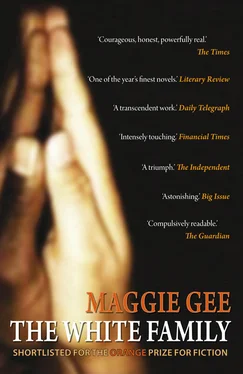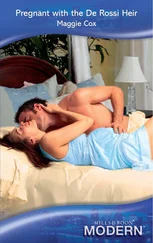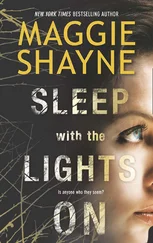‘Aisha is completing a doctorate in cultural studies at SOAS. Thomas is writing a book, Aisha, something very clever, too clever for us all. Tell Aisha why you will not go to the film.’
Her elegant profile swivelled towards him.
‘Oh really, Suneeta, I don’t know,’ Thomas protested, embarrassed. ‘I haven’t decided. Perhaps I will.’
‘Go and buy your ticket,’ Suneeta said, pushing him gently towards the box office.
He found himself queueing for a ticket. (Bossy cow. It was a damn nuisance. He had a backlog of work to clear. This was one of the special cultural events the cinema ran in association with the library, and he and Errol had helped work out the programme, but surely this film was Errol’s province. He could see Errol chatting and smiling by the door, his matt black curls now salted with grey.)
Turning round, Thomas was suddenly face to face with Shirley. A wonderful summery smell of vanilla. He breathed it in. Her neck was round and smooth. Her lips were moist and slightly parted.
‘Shirley! What on earth are you doing here?’
‘Waiting for someone,’ she said, with a smile. She looked
— stunning. Creamy, glowing, and she smiled at him as if she was really glad to see him. ‘I’m going to the film about James Baldwin.’
‘Oh. Why?’ he asked, without thinking.
She stared at him a moment. ‘Because someone asked me. Writers are interesting, anyway.’
‘Of course they are,’ he said hastily. He felt slightly jealous she was meeting someone.
‘Film will begin,’ called Suneeta, imperious.
‘See you inside,’ he said to Shirley.
He sat with Suneeta and her daughter. Aisha started telling him about her doctorate. Her mother still seemed to be keeping one eye on him as if he might escape at the last minute.
As the lights went down he turned round and looked for Shirley, but she wasn’t among the scattering of faces.
Then someone came in, and as the blue dark engulfed the cinema, his nerve-ends prickled. Tall, black, with those light strange eyes and an intense way of gazing across the room, as if he felt he had been chosen by fate — It was the worrying young man from the library. The one who had ordered One Thousand Years of Lynchings .
‘Suneeta —’ he tried to attract her attention, but she shushed him, staring ahead at the screen.
By the time the lights went up again he had forgotten his moment of fear. Baldwin’s voice, caressive, teasing, rising to biblical peaks of anger but more often lucid and to the point, had seemed to be talking to him, Thomas. ‘I went to the library at least three or four times a week and I read every single book in the library …’
Thomas had forgotten why libraries mattered. He’d almost forgotten that he loved books. Baldwin’s clear intelligence made him feel embarrassed by the quotations on the file-cards stuffed in his pockets. ‘A sign is interpreted into a different sign, an interpretant, which can be interpreted into a different sign, and so on ad infinitum …’ Was it just waffle, The Death of Meaning ? Did the book he was writing express his own numbness?
What was the wonderful thing Baldwin said? ‘Books taught me that the things that tormented me the most were the very things that connected me to everyone who was alive and who had ever been alive.’
Thomas had tried to forget his awful divorce. He’d tried to forget the hellish months when his parents were dying, in separate hospitals, on different sides of London, with him going between them. Avoiding pain, he had become cut off. Then Melissa had come to knock on his door … Perhaps he could rejoin the human race.
Watching the footage near the end of the film when Baldwin, huge-eyed, faun-faced, grey, thin as a blade of grass from cancer, flittered like a dying butterfly through his sun-flecked garden in the South of France, through bushes burning pink and gold for the camera — a few seconds from one last hot summer day — Thomas felt acutely, in his whole body, how precious life was. How bright, how short.
Whatever life offers, I shall take.
The audience sat quiet as the lights went up. Somewhere at the back, a few people clapped. After another minute, Thomas touched Suneeta’s arm. ‘Thank you, Suneeta. Magnificent.’
‘ Specialist interest ,’ she chaffed him. ‘Ha!’
‘Suneeta,’ he said. ‘I am sometimes stupid.’
She said something to her daughter in Gujarati, and they laughed at him, but without malice.
Then he remembered Shirley, and got up, quickly.
He was just in time to see her leave, her halo of bright blond curls under the lights, through the exit on the other side of the cinema. Somebody was with her, his arm round her shoulder. He was black, Thomas saw first, and then, unbelieving, he realized it was the strange young man. With a short sharp intake of breath, he followed them.
Sitting by Winston in the half-empty cinema through that extraordinary film, Shirley was aware of his excitement. He hooted with laughter at a clip of Baldwin replying to a fat Irish critic: ‘You are black, impoverished, homosexual — you must have said to yourself, Gee, how disadvantaged can I get?’ ‘No, I thought I’d hit the jackpot.’ Winston laughed so loud that other people turned round. But later she was almost certain he was crying. Or perhaps he just had early hay fever.
At the end of the film, he put his arm round her shoulders. ‘I loved it,’ she said to him, before he could speak. ‘You know I don’t read. But I want to read him.’
‘I’ll lend you Giovanni’s Room ,’ he said. ‘Shirley, you’re a special lady.’
He was half-bending over her under the light between the cinema exit and the foyer when Thomas Lovell bumped into them, obviously half-blinded from the dark inside, because he practically pushed between them.
‘Hey, Thomas,’ Shirley said. ‘This is Winston — Thomas Lovell.’
‘Hi,’ said Winston. ‘I know you, don’t I?’
For some reason Thomas hardly smiled. Could he be jealous? Surely not. ‘Yes,’ he muttered. ‘I see you in the library.’ He was noticeably slow taking Winston’s outstretched hand.
‘Winston and I were going to get a coffee. Would you like to —?’
‘I’ve got work to do —’ Then he seemed to change his mind, and stood there, frowning. ‘So what did you think of the film?’ he asked her.
‘It made me cry,’ Shirley said. ‘I thought that Baldwin was — wonderful.’
(She knew she would never be able to explain it, but everything he’d said seemed to be about her. She couldn’t remember it word for word, but something about the point of suffering. That the things that made you suffer most were the ones that linked you to other people. Connected you to everyone who’d ever been alive … So it wasn’t for nothing, she suddenly thought. They weren’t for nothing, her lost children.)
‘I liked it too,’ said Thomas, but he didn’t seem to be listening. He had turned his body to exclude Winston. She glanced at Winston apologetically, and Thomas seemed to realize what he had done. ‘Did you like it, uhm?’ he threw in Winston’s direction, but he had apparently forgotten his name.
‘Baldwin’s, like, an icon,’ Winston said, and smiled his radiant smile at Thomas, the smile that usually made people like him, the smile that probably protected him (because Shirley sensed he was vulnerable).
But Thomas didn’t respond to his charm. The conversation faltered and died; Thomas’s coldness made things awkward. Winston suddenly remembered he had things to do. Shirley felt sorry; it had been a rare chance for her to be alone with him. She had been sure he wanted to talk. Now Thomas had put paid to that.
Читать дальше












